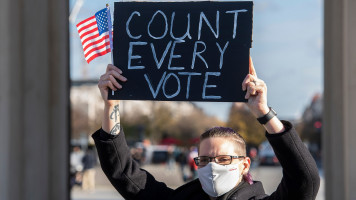South Sudan clashes leave more than 170 dead: lawmaker
More than 170 people have been killed in fighting between rival cattle herders in central South Sudan in the past week, a lawmaker said on Tuesday.
"When it comes to those who are wounded, it is almost 200," added Dharuai Mabor Teny, a member of parliament from the Western Lakes area, some 250 kilometres (155 miles) northwest of the capital Juba.
It more than doubles a previous toll issued late last week, since fighting between rival factions of the Dinka people, the Rup and Pakam clans, broke out on December 6.
The government has declared the fighting a state of emergency, meaning that soldiers have been deployed after local state officials were overwhelmed.
"The state of emergency is meant to curb violence," presidential spokesman Ateny Wek Ateny said, adding the fighters were hurling grenades and firing rockets at each other.
"Civilians are locked up in very violent communal fighting."
Local information minister of Western Lakes state Bol Machok said homes have been torched and people forced to flee.
Rival pastoralist communities in South Sudan have a long and bloody history of tit-for-tat raids in which cattle are rustled and property looted. Women are commonly raped and children abducted, adding fuel to revenge attacks.
Such attacks have worsened amid a breakdown of society during the four-year civil war which began in December 2013.
Half the country is in need of emergency food and a third has been forced from their homes since then, according to the UN.
Last week, the UN humanitarian chief said UN said more than one million people in war-torn South Sudan are one step away from famine – twice as many as at the same time last year.
Despite two million people fleeing the country over the past four years, seven million people inside the country – "almost two-thirds of the remaining population" – still need humanitarian aid, Mark Lowcock told the UN Security Council, adding that by early 2018 half the country’s population will be reliant on emergency food aid.
Jean-Pierre Lacroix, UN peacekeeping chief, described the situation in South Sudan as "precarious" and warned of escalating military conflict and inter-communal fighting.
He added that conflict-related human rights violations continue including looting, house burning, killing of civilians, arbitrary arrests and sexual violence, "with organised forces being implicated as perpetrators in most instances".
Tens of thousands have died in the fighting and nearly four million have been driven from their homes.
Agencies contributed to this report.





 Follow the Middle East's top stories in English at The New Arab on Google News
Follow the Middle East's top stories in English at The New Arab on Google News


![Algeciras port [Getty]](/sites/default/files/styles/image_330x185/public/75377010.jpeg?h=327453ef&itok=KfCFUEza)